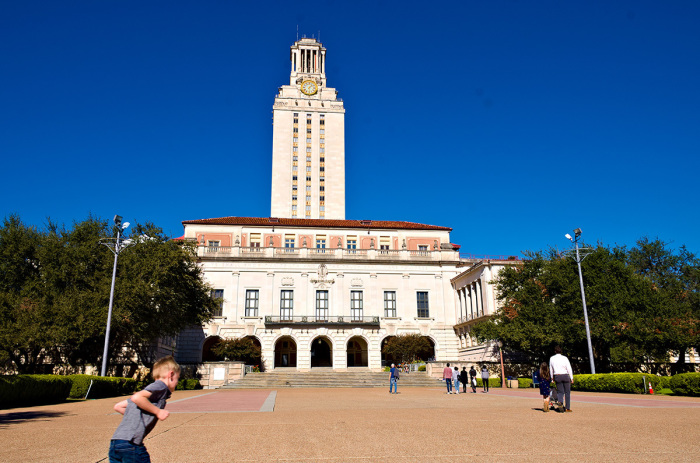State halts practice under Texas Dream Act signed in 2001 under Gov. Rick Perry

Students who are in the United States illegally are no longer eligible to receive a discount on tuition rates at public universities in Texas.
The U.S. Department of Justice sued the state of Texas Wednesday over a law that grants residents who are in the U.S. illegally in-state tuition rates with proof they lived in the state three years prior to graduation, which federal prosecutors said “unconstitutionally discriminates” against U.S. citizens.
The lawsuit claimed Texas’ practice violated federal law prohibiting colleges from offering benefits to non-citizen students unless out-of-state residents and other U.S. citizens are also eligible.
Within hours of the DOJ’s lawsuit, Gov. Greg Abbott and Attorney General Ken Paxton sided with the DOJ. Paxton’s legal filing asked the court to rule that the law favoring illegal aliens was unconstitutional because it was in “direct and express conflict with federal law. Texas education law, wrote Paxton, “specifically allows an alien who is not lawfully present in the United States to qualify for in-state tuition based on residence within the state, while explicitly denying resident-based tuition rates to U.S. citizens that do not qualify as Texas residents.”
“Today, I entered a joint motion along with the Trump Administration opposing a law that unconstitutionally and unlawfully gave benefits to illegal aliens that were not available to American citizens,” Paxton said in a statement. “Ending this discriminatory and un-American provision is a major victory for Texas.”
Under the Texas DREAM Act signed by Perry, a Republican, in 2001, Texas became the first state to offer in-state tuition to illegal residents. Following the passage of HB 1403, nearly 20 other states passed similar legislation.
Because the law is tied to residency and not legal immigration status, U.S. citizens, permanent residents or, in some cases, international students are eligible for in-state tuition if they have lived in Texas for at least a year, compared to three years for undocumented students.
An estimated 57,000 students in the U.S. illegally are enrolled in Texas universities and colleges, according to the nonprofit Presidents’ Alliance on Higher Education and Immigration.
Calling the move “harmful and self-defeating,” Monica Andrade, an attorney and director of State Policy and Legal Strategy at the Presidents’ Alliance, claimed, “The Department of Justice’s lawsuit challenging Texas’ in-state tuition policy is fundamentally flawed and misrepresents how these policies work. To suggest that undocumented students are receiving benefits denied to citizens is false and misleading.
“In fact, any U.S. citizen who meets the same criteria — such as attending and graduating from a Texas high school — qualifies for in-state tuition. These requirements apply regardless of immigration status,” Andrade added.
Last month, state lawmakers considered a proposal to repeal the Texas Dream Act. Senate Bill 1798, authored by Sen. Mayes Middleton, R-Galveston, would eliminate provisions of the 2001 Texas DREAM Act, which allows non-U.S. citizens who were brought to the U.S. illegally and graduate from Texas high schools and have lived in the state for at least three years to pay in-state tuition.
Under SB 1798, those students must also sign an affidavit pledging to pursue U.S. citizenship when possible.
Immigration advocacy groups have warned that the repeal would mean those students illegally in the country would have to pay out-of-state tuition, which is about three times higher than in-state tuition rates.
A study from 2023 by the American Immigration Council projects that Texas could lose $461 million annually if the law is repealed, citing increased earning potential from college-educated undocumented students, which it claims boosts tax revenue and fills workforce needs.

















